
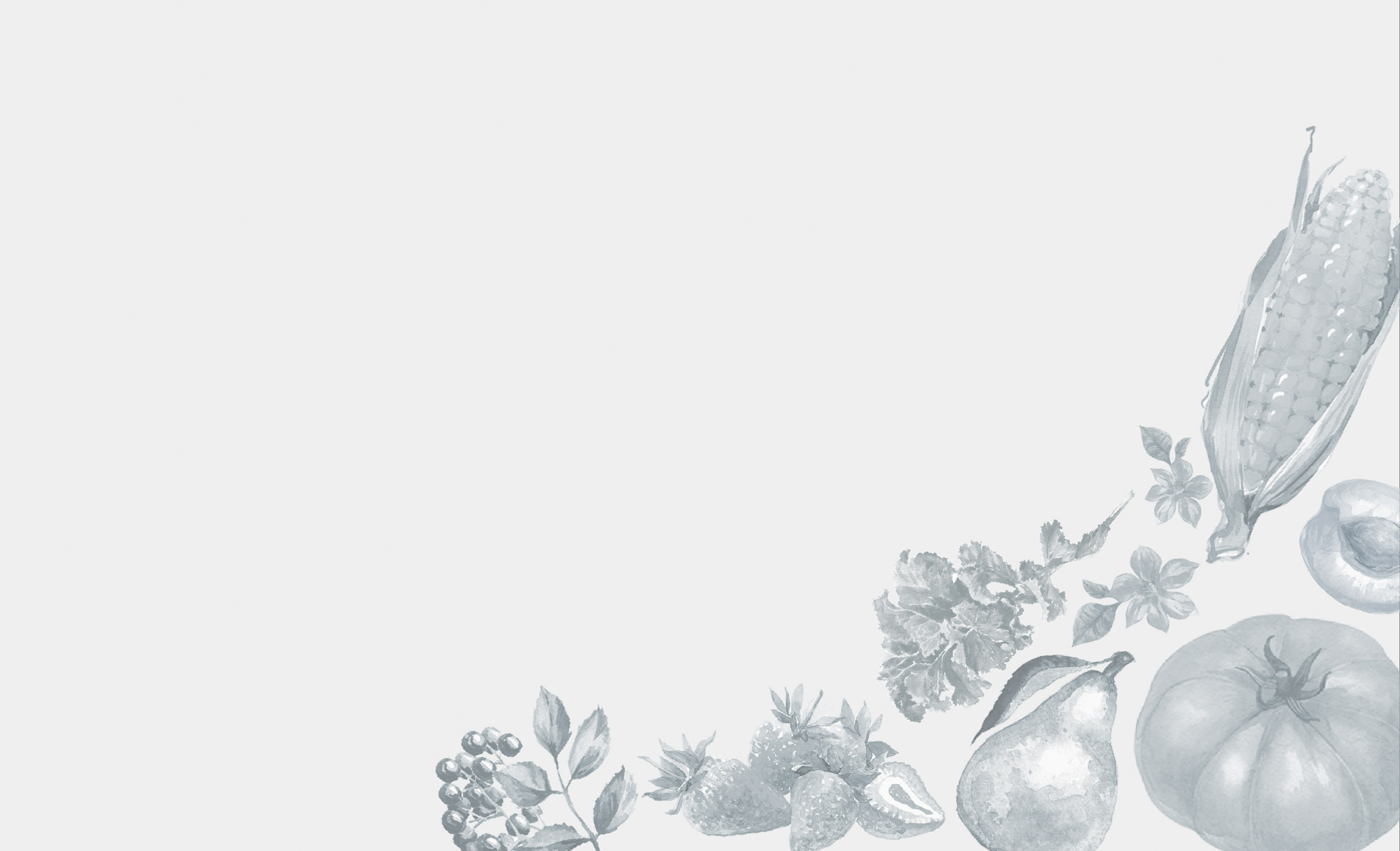
"An Australian icon where the beautiful rhythm of life
is emphasised and honoured."
— Luxury Travel Magazine

Sunday 12 May
Cheers to those who love us, fight for us, care for us, nurture us… It’s time to celebrate the Mama’s in our life.
Send her on an overnight escape…. Book in for a long family lunch…. There are also gift vouchers, gourmet hampers, spa at home indulgences galore…
Alla Wolf-Tasker AM is the Culinary Director and co-proprietor, of Australia’s much loved and iconic Lake House in Daylesford. Now in its fourth decade, Lake House continues to collect accolades and awards and remains on the significant national “Best Of” listings.
Alla is herself the recipient of a myriad of ‘Contributions to Industry’ awards, has several ‘Living Legend’ awards under her belt and was made a Member of the Order of Australia for her work in the hospitality and tourism areas.
This is how women do it: Leading women in restaurants.
Do women do restaurants differently? Dani Valent sits down with some of Australia’s most renowned and long-standing female restaurateurs to talk nature, nurture and imposter syndrome.
Dani Valent | April 2024
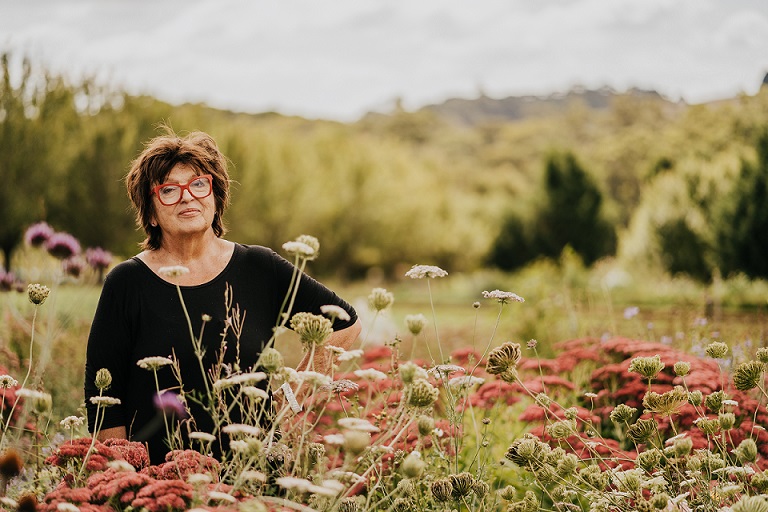
Alla Wolf-Tasker is sitting in the dining room at Lake House, the Daylesford destination she founded with her late husband Allan, 40 years ago. That she’s occupying a table is unusual. She can’t remember the last time she ate in her own restaurant. But our topic is legacy, and the way women build it, and Wolf-Tasker decides the best way to chew it over is literally, during a lunch with daughter Larissa, just three years old when her parents founded the business and now Lake House’s brand manager.
Our table of three discusses all kinds of things: unseasonal pine mushrooms springing up after summer rains, the peacock that visited Wolf-Tasker after her beloved Allan passed away in 2022, the beauty of broccolini shoots and – as so often happens when speaking with successful women – imposter syndrome. “Early on, I went through a terrible period where if the mise en place [kitchen preparation] wasn’t right, I didn’t know how to tell the chefs,” she says. “So I would get up at three o’clock in the morning and replace it all.”
Lunch is a parade of produce and technique, service is unobtrusive and expert, a little wine is poured. We tear into sourdough made at the in-house bakery. The kitchen’s deep purple duck ham is furled alongside heirloom beetroot grown just up the road at the family’s Dairy Flat Farm. Lamb as pink as sunset sits in a jus so bright the chandeliers are reflected in it. A kookaburra lands on its special perch on the veranda, awaiting the eye fillet entrusted to delighted guests to dispense. Every morsel and marvel is testimony to Wolf-Tasker’s vision, determination and refusal to listen to naysayers. “In the 1980s, they called me the little foreign woman down by the lake,” she says. Without doubt, Daylesford’s transformation from potato paddocks into wishlist getaway is due to the ever-developing example of Lake House, which now employs 120 people. Appropriately, in 2007, she was named a Member of the Order of Australia for her services to regional tourism and hospitality.
An icon if ever there was one, she demurs at the idea. Her menu begins modestly, “Welcome to our house on the lake” and Alla is listed as culinary director, alongside head chef Brendan Walsh. “People ask me to put my chef’s coat on and sashay around,” she says. “But I never do. I can’t claim to have cooked the food. I may have been involved in the notion of the food and the design of the food and the conversations about the food and what we’re growing to make the food but I just cannot take the credit.” We ponder other chefs – male ones – and whether they would have the same reluctance.
Is there a difference in the way men and women run restaurants? “From my perspective, Lake House came from you wanting to share your vision of hospitality as a refined extension of a country home,” says Larissa. “We wanted people to be comfortable, to share food and foster relationships. That is a very female drive, bringing people together around the table and creating community.” Although Lake House keeps changing, there’s consistency to carry into the next 40 years. “The vision is the same,” says Larissa. “We have this living, breathing beast that keeps expanding but the continuity allows us to bring other people – men and women – along for the ride.”
Why tend one business rather than expand? “Building an empire makes economic sense,” says Wolf-Tasker. “You get the economic benefits of centralising HR, admin, insurance. But very few women, I think, calculate like that. It’s very much, Was that a great service? You don’t often hear them pulling apart the taxation situation. That’s not necessarily good but you can’t own seven restaurants and put your heart and soul into every one. I think women do hospitality differently, it’s almost a need, you can’t be at arm’s length. I tend to be Mother Superior and social worker here: I know who owns a dog, who’s had a relationship breakup. Does it make me a better boss? Not necessarily, but it helps you understand the people you’re working with.”
Judy McMahon has been in hospitality since the late 1970s, mostly alongside her late husband Michael, who died in 2020. The pair founded Catalina at Rose Bay in Sydney 30 years ago. “My husband was the name,” says McMahon. “He was interviewed, featured but I was always there, in the background keeping the wheels turning.” Fifteen years ago, Michael started suffering health issues. “It was my opportunity to take the bit and run with it.” She believes women tend to be brave. “My experience of husband and wife hospitality teams of a certain vintage is that women are far more open to new ideas than men, who are often the chefs. The machine is the two of them working together: the women paving the way and the men getting the attention and the accolades.”
She implemented changes that were radical in 2009: an electronic bookings diary, a database, marketing emails. “As these things worked, I developed confidence,” says McMahon. “I turned our business around.” She also steered the culture at Catalina. “I’ve developed a workplace where people feel valued and listened to,” she says. “Often, male leadership was ‘my way or the highway’ but I’m a mother. You have to work out a way of problem-solving that doesn’t crush someone.”
Cafe Sydney will celebrate 25 years this year, 24 of them under the management of Jan McKenzie. She came to the role with years of food and beverage experience in Adelaide, Hong Kong and London. “Hospitality is rewarding, diverse, it makes you dig deep on so many levels of your existence,” she says. The industry is more welcoming for women than it was when she started but it’s still not easy. “I feel powerful now but as a younger woman I felt I had to constantly prove myself,” she says. “Now I feel I have mutually respectful relationships with men. I would like to think we’re at a point where equality rules and women have a natural path to success.”
Why has she stayed at Cafe Sydney for so long, rather than build an empire? “I had a family,” she says. “I made that choice.” But also, “I want to be deeply connected, almost obsessive. Other people – male or female – might not need that.” She believes there’s something in the idea of women going deep rather than restlessly seeking new challenges. “There are few men that have that attention to detail, looking at every surface, in every corner.” Renewal comes from within. “I hear people say they cannot believe Cafe Sydney’s been open for 25 years. But it keeps getting refreshed: I’m French polishing now. Every surface has been done over 10 times. There’s freshness in having 150 staff, aiming year on year to keep fine tuning and get better.”
It was Swain who convinced Romeo she was ready to be a restaurateur nearly 20 years ago. “He was sure of himself, all I knew is that I loved the industry,” she says. “When we opened, media would always write about the food. I had to step up and say, ‘Hello, here I am, it’s not just about the chef, it’s about the experience.” Romeo considers whether her passion for service is about nature or nurture. ”I don’t think it’s gender, necessarily, but women are socialised to be attuned to others’ needs, customers and team members,” she says. “I’m a big believer in intuitive service: it’s hard to teach and I know I have it. I don’t know if it’s because I’m a woman. Is it personality, is it because I studied psychology and know if a customer is anxious or wants to impress?”
Back at Lake House, Wolf-Tasker takes a snap of a dish she plans to discuss with her chef: might there be a different way to plate the beef and artichoke that encourages diners to taste all elements at once? These days, she’s beyond sneaking into the kitchen to redo prep. “Brendan is impeccable, he has great craft,” she says. “We have a conversation and next minute, it’s different. That’s how it works.”
Daylesford Macedon Life Magazine | Spring Summer 2023 / 2024
by Daylesford Macedon Tourism
It has been a privilege to monitor the awakening of global best practice producers in Australia over much of the past 40 years. In fact, it has been doubly a privilege for me – not only as a chef, always on the look out for the best – but also as a long-term judge on sitting at the table of various national awards identifying and promoting Australia’s intent on providing the best and most beautiful produce using sustainable practices.
What has been particularly gratifying is seeing some of our local producers continue to be awarded trophies and gold medals at a national level.
What commenced as a slow trickle years ago, is now a steady stream of primary producers, growers and artisan manufacturers, all will an eye on the regenerative farming of rare animal breeds and heritage varieties of fruits and vegetables, particularly suited to our local climate and terrain.
Historically, Australia is not a country of small-scale artisan farmers and producers passing on a legacy of manufacturing and cultivation skills from one generation to the next. We never had that kind of peasant class. Compared to us, countries like France and Italy have a head start of several centuries of good food culture. In Australia, early land allocation to settlers had mostly gone to urban folk with no agricultural experience, who worked within the then accepted notion that our resources here, of both land and water, were virtually limitless. What could go wrong?
Plenty, as we discovered. Intensive industrial meat, poultry and fish farming requires substantial chemical inputs into feed to ensure that the animals stay alive. Limitless clearing for pasture lead to increased salinity and many other resource issues. Other thoughtless agriculture practices further deplete already lifeless soils requiring even more herbicide and fertilisers.
Mind you, years ago, when the first stirring of interest in ‘local producers’ emerged amongst Australian chefs and their clientele, the agenda was to promote colourful stories and characters rather than any concerns over sustainability or ‘good food’. Marketing campaigns run by tourism bodies touted ‘food and wine trails’. And small businesses with little hope of survival bought into a half story, not destined to last.
Nowadays, there is real appreciation of the efforts of Australian growers, and a genuine understanding of our good fortune in having access to some of the best produce in the world. The dedications and concern of these producers is helping ensure there will be a ‘good food’ future for Australia, through best animal husbandry and agricultural practices.
The resulting ‘best produce’ is not only venerated by chefs and good cooks producing nutritionally appropriate and delicious food, but it also aids in promoting better levels of health within our communities.
Poorly raised animals within the still dominant industrial food system, together with a reliance on toxic herbicides for plant growth and the massive additives rampant in processed food, have no doubt lead to the increase in ‘first world’ diseases and health problems that continue to plague us.
But thankfully, the tide has been turning. We are all capable of being agents for change. Support your local food community. Grow some food for yourself. Shop at accredited farmers’ markets and engage in conversations with growers and producers. Ask your favourite chefs about the provenance of the ingredients they use. Interest and demand will fuel the important outcomes that this beautiful country and our communities need.
And when you next visit our region, take an interest in the local produce available at our markets and being served at our pubs, cafes and restaurants.
If you are staying with us at Lake House, be sure to join a tour of our beautiful Dairy Flat Farm. You’ll discover the lodge, the bakery, the orchard, olive grove and acres of vegetable plantings. It’s just a few clicks down the road and it’s our investment in the local food sustainability story. And, most of what you enjoy at our table will have been harvested that morning. Our café Wombat Hill House in the Botanical Gardens also not only uses our farm harvest, but sells the beautiful sour dough loaves and pastries – baked at our farm that morning.
Don’t forget that there’s a farmer’s market operating somewhere in our region every weekend. so get out there, shop with the locals (tip: they get to the markets early) and enjoy the best, good for you, produce to be had in the region.
If it’s Daylesford Sunday Market that you visit – you’re likely to meet Florian from Mt Franklin Organics; Ed from Adsum Farmhouse; the Brooklands Free Range Farm family; Two Fold Bake House and Nardia from Goldfields Farmhouse Cheese. If the glorious country air brings on an appetite rush – the Dobson family from Korweinguboora will be there cooking up a storm of wonderful organic falafels and other deliciousness.
We look forward to welcoming you.
Alla
Winter … It’s often a season we try to sidestep in one way or another. Careering energetically down snowy slopes or leaving home to chase the sun. But winter has an intrinsic beauty all of its own. And besides, there’s always been the notion that harmonising with nature’s cycles and patterns might be a healthier way to live.
Certainly when it comes to good health and nutrition, eating seasonally is the best way to go. For cooks and avid gardeners, winter has plenty of deliciousness on offer. And as it turns out the most bountifully available winter vegetables are just so very good for us. All the brassicas from kale and cabbage to brussel sprouts and cauliflower are adept at powering the nutritional needs of this season. Alliums – garlic, shallots and leeks do their bit in warding off colds and clearing blood. Root vegetables in general, carrots, beets, turnips, sweet potatoes are packed with vitamins and essential minerals. And everyone of these vegetables are delicious in warming soups, slow braised in casseroles or even slow roasted with a drizzle of good olive oil.
You’ll note that ‘slow’ is an oft used word when describing winter cooking. Letting things bubble away gently until delicious smells permeate the house and draw hungry mouths to a shared table. It’s a form of cooking I’ve always reveled in. Amongst its many benefits it also offers the opportunity to multitask of course. But ‘slow’ also relates to how we might generally approach winter.
In traditional Chinese medicine winter is a Yin season. If we look at the animal world its’ clearly a time for slowing down and for the essential conserving of energy. Cooler darker days offer opportunity for meditative space to rest and reflect. Yin time is used to replenish one’s resources and it can (and should be) a very nourishing time. Each of us might have our own version of a winter hibernation – but here in our neck of the woods it can look particularly appealing.
When you’re with us this winter, hopefully you’ll take the opportunity to pause, reflect and nourish yourself. It may be through the enjoyment of our food, much of it lovingly grown just down the road at our beautiful Dairy Flat Farm and cooked with skill, care and served by our team. It may be that you linger over the view of the last golden leaves on the lake foreshore, dose in a deep Japanese bath of hot mineral water, or look into the open flames of the warming fire pit by the lagoon. Slow down, forget yesterday and tomorrow. We are here to provide a myriad of ‘in the moment’ opportunities for you.
– Alla Wolf-Tasker AM
Culinary Director, Lake House Daylesford & Dairy Flat Farm Daylesford
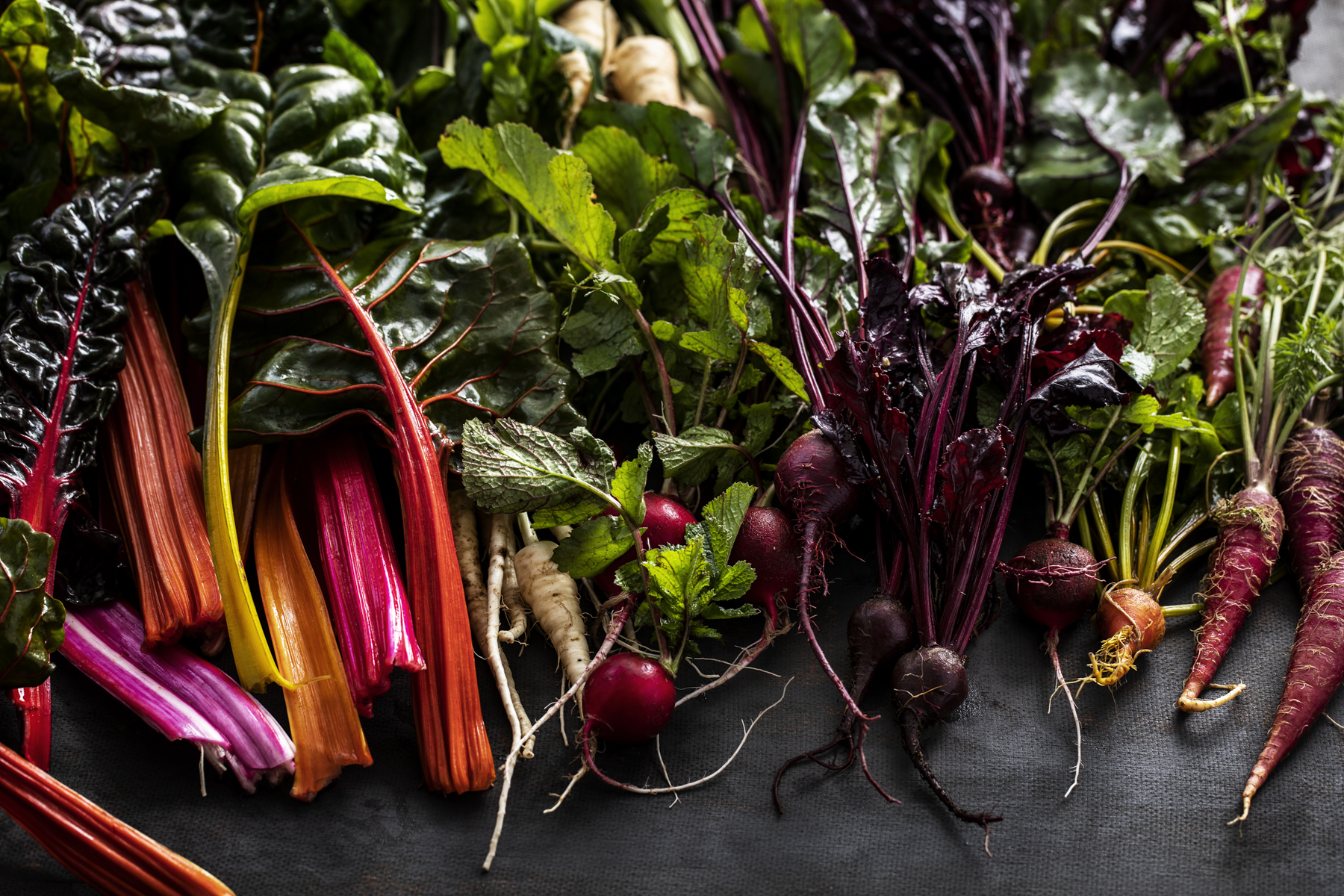

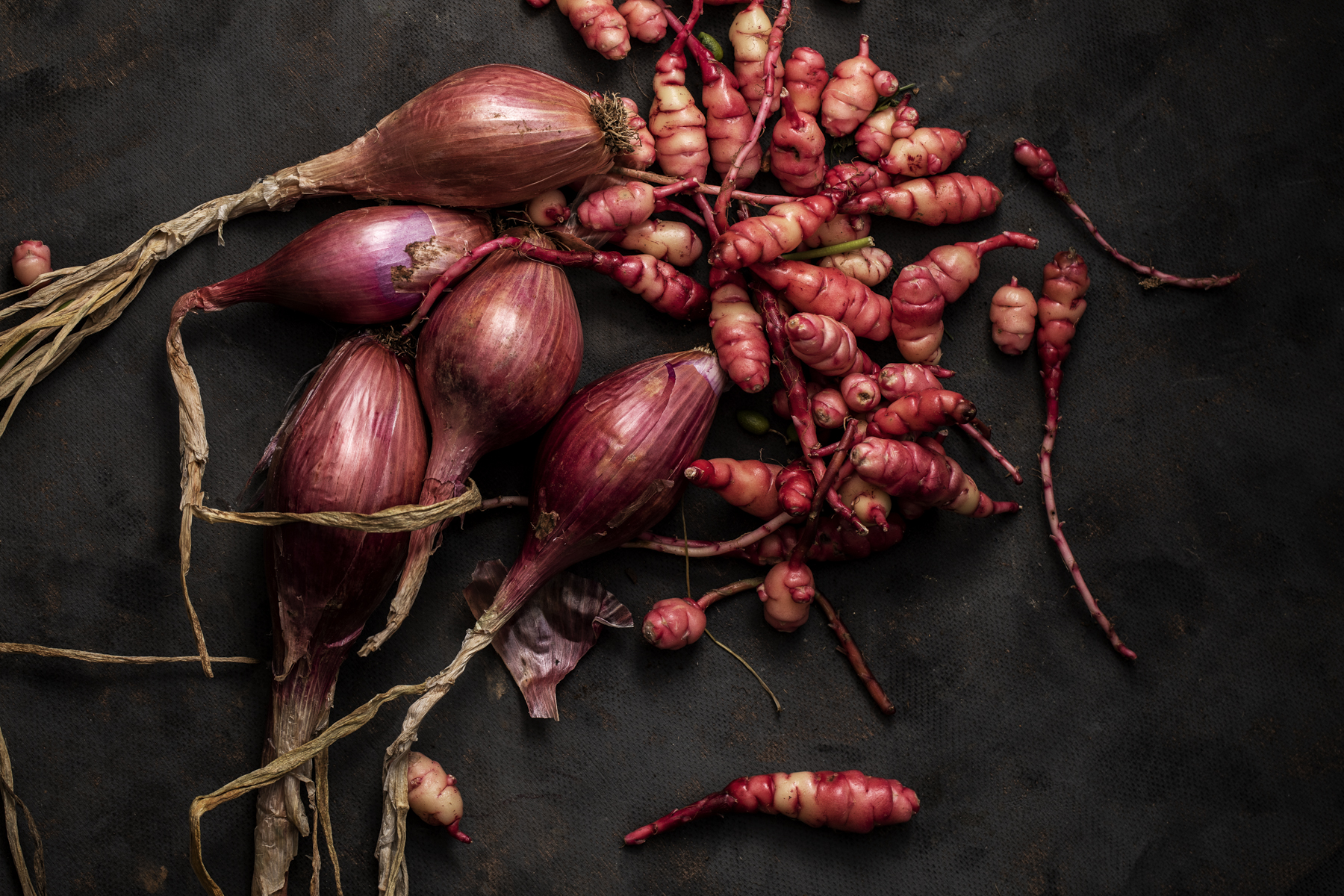
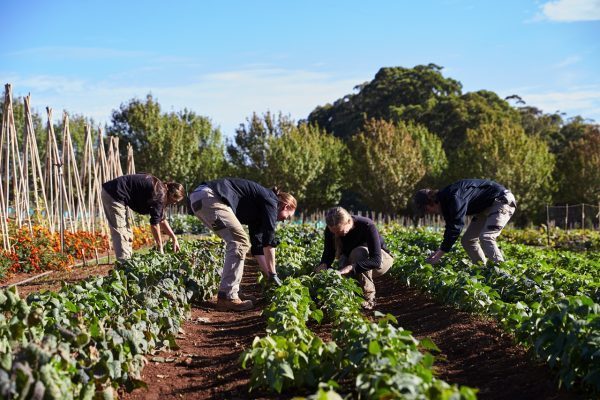
Welcome to our Autumn at our House on the Lake.
Thank you for making the journey! You may have already had an opportunity to tour Dairy Flat, our farm and lodge, just a few clicks down the road and seen at first hand the extensive plantings that are harvested for our daily menus. The calendar has fully clicked over to autumn, so there’s plenty of late-season tomatoes, leafy greens, heirloom carrots, beetroots, parsnips, radish & beans around in addition to the last of the cucumbers & zucchini turning up daily.
Our four-course menu includes much of what has been freshly harvested yesterday and today. Our slow (it’s properly fermented and takes time) sourdough and breakfast pastries (if you are staying with us) are baked daily at our farm bakehouse. In fact, you’ll find some of our dishes are entirely plant based, but rather than use that terminology, we prefer to use “the art of the vegetable” as a tribute to how much inspiration this beautiful produce, lovingly grown by members of our #lakehousetribe, offers us. Again, welcome! We are very pleased to have you with us.
Alla Wolf-Tasker
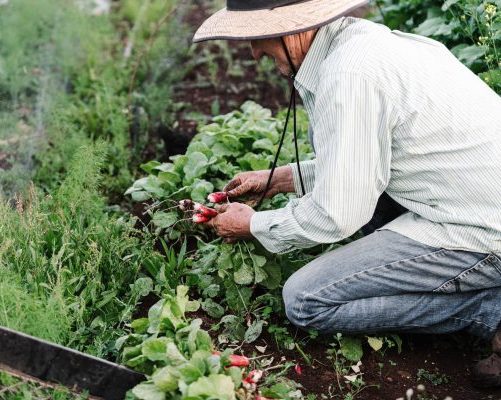
Welcome to Summer at our House on the Lake.
Thank You for making the journey! You may have already had an opportunity to tour Dairy Flat, our farm and lodge, just a few clicks down the road and seen at first hand the extensive plantings that are harvested for our daily menus. The calendar has only just clicked over to summer, so there’s still plenty of late brassicas, leafy greens, heirloom carrots, garlic, baby turnips, radish & fennel around in addition to new-season cucumbers & zucchini turning up daily.
Our four-course menu includes much of what has been freshly harvested yesterday and today. Our slow (it’s properly fermented and takes time) sourdough and breakfast pastries (if you are staying with us) are baked daily at our farm bakehouse. In fact, you’ll find some of our dishes are entirely plant based, but rather than use that terminology, we prefer to use “the art of the vegetable” as a tribute to how much inspiration this beautiful produce, lovingly grown by members of our #lakehousetribe, offers us. Again, welcome! We are very pleased to have you with us.
Alla Wolf-Tasker
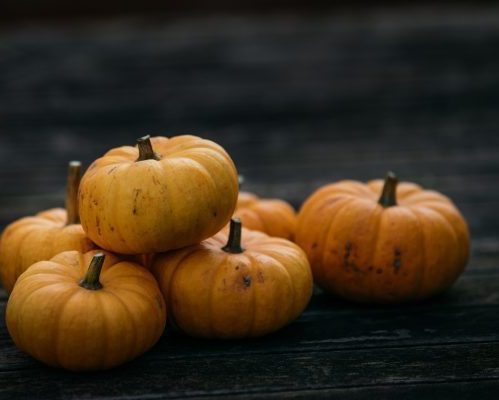
Welcome to Spring at our House on the Lake.
If you have had an opportunity to tour Dairy Flat, our farm and lodge, just a few clicks down the road you may have seen firsthand the extensive plantings that are harvested for our daily menus at Lake House. The calendar has only just clicked over to spring, so there’s still plenty of late winter brassicas, leafy greens, heirloom carrots, beets, baby turnips, salsify, radish, celeriac, kohlrabi, baby leek and Jerusalem artichokes around. Not to mention the massive harvest of many pumpkin varieties still cellared from Autumn.
Our four-course menu in the Lake House Restaurant includes much of what has been freshly harvested yesterday and today. Our slow (it’s properly fermented and takes time) sourdough and breakfast pastries (if you are staying with us) are baked daily at our farm bakehouse. In fact, you’ll find some of our dishes are entirely plant-based, but rather than use that terminology, we prefer to use “the art of the vegetable” as a tribute to how much inspiration this beautiful produce, lovingly grown by members of our #lakehousetribe, offers us. We hope to see you soon at our table, on the farm and in the hotel.
Alla Wolf-Tasker
Welcome to our House on the Lake.
Thank you for making the journey! After all the openings and closures of the past two years, we are particularly pleased to be well on the way to be able to offer you a full year of beautiful seasonal produce from our Dairy Flat Farm on the menus. At the moment we are celebrating an abundance of brassicas, all manner of leafy greens, heirloom carrots, beets, baby turnips, salsify, radish, pumpkins, baby leeks, Jerusalem artichokes and much more. Locally foraged forest mushrooms are abundant. Our four course menu includes much of what has been freshly harvested yesterday and today.
Our slow (it’s properly fermented and takes time) sourdough and breakfast pastries (if you are staying with us) are baked daily at our farm bakehouse. In fact you’ll find some of our dishes are entirely plant based, but rather than use that terminology, we prefer “the art of the vegetable” as a tribute to how much inspiration this beautiful produce, lovingly grown by members of our #lakehousetribe, offers us. Again, welcome! We are very pleased to have you with us.
Alla Wolf-Tasker
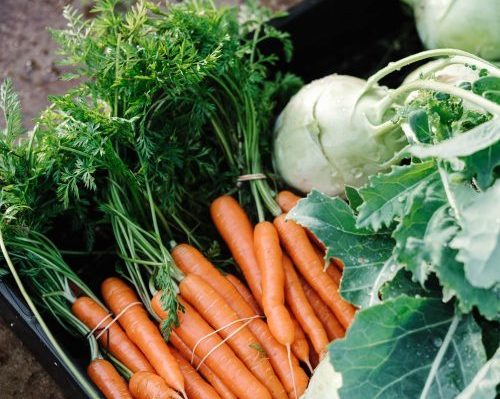
“You can do better.” Those words still ring in my ears, every day. They don’t say you’re not doing a good job, just that you can always do better, you can always push harder. Alla was the confidence I needed in my ability to cook, but also to cook with passion, thought and energy, and most importantly, discipline. Teachings in cooking techniques that have stayed with me to this day: routine, and ritual that I value and pass on.
Respect for ingredients to absorb the beauty and capture the flavours of nature in each dish. Celebrate the earthiness of mushrooms, smell the fresh damp earth, and connect to the ingredient. That I have a seasonal regional restaurant and champion producers is no accident. Alla planted the seed years ago and I am eternally grateful. She never pretended it was easy or that it would come easily to me, just that if I was willing to work, commit and be bloody-minded in my approach, anything was possible.
Alla is a fearless leader with thought and consideration for those around her. My eyes were wide open watching her, always so present in the restaurant, and to this day I find myself in certain moments feeling as if she is just beside me, whispering: “You can do better.”
Finishing at Lake House, Alla said to me: “We will work together again someday.” The funny thing about that is I feel she has been on the journey with me the whole way.
Alla Wolf-Tasker | Executive Chef and Co-Owner, Lake House Daylesford, Victoria
I remember Karena as a determined young woman of talent and quiet confidence. I watched her progress carefully, mindful of the considerable potential for ‘slings and arrows’ that I had experienced as a very rare female cook in French kitchens in my formative years. But Karena gave as good as she got – mostly with a broad grin and an easy, slightly `ocker’ drawl.
Her work was refined and caring. She was strong-willed and ambitious.
In 1998, she was our winning entrant into the National Bonlac Apprentice of the Year Awards. It’s telling that Karena chose as her prize to attend the San Francisco Baking Institute for two solid weeks of hands-on sourdough classes instead of restaurant stages abroad. I think the direction her food was going was already sealed.
She’s developed into a wonderfully strong role model, a successful business owner and a brilliant cook. It would seem that she’s also negotiated the perils of work-life balance. That grin is still there and the slightly ocker drawl is pure joy. Most importantly, she always looks like she’s enjoying herself.
What’s the big fuss about “local food”?
For a moment it felt very much like a fad. And sometimes, in the wrong hands it still does.
Luckily the notion of the critical importance of local food has remained in the hearts of many. Accredited Farmers’ Markets have prospered. Community-supported agriculture boxes and meat packs have become a far more normal way to shop. And of course, in this wonderful burgeoning food bowl that is our ‘hood – all of this and more, has become part of our daily life. Demand of course, in turn, creates initiative and viability. We are fortunate indeed to have a local community that is committed and cares about the source of its food.
And take a look at the reasons preferred for post-COVID ‘flight from cities syndrome’ – availability of fresh local produce is often at the top of the tree changers’ agenda. And so, it is here.
Is this perhaps just the remarkable success story of regional marketing? Certainly not every region is a bountiful food bowl. Many in fact, are still firmly anchored in traditional industrial and generally monocultural agriculture, where nothing that is grown on farm is destined for local tables.
And what does it matter anyhow? What’s this ‘local’ business all about? And why do even Australia’s major supermarkets buy into the spin?
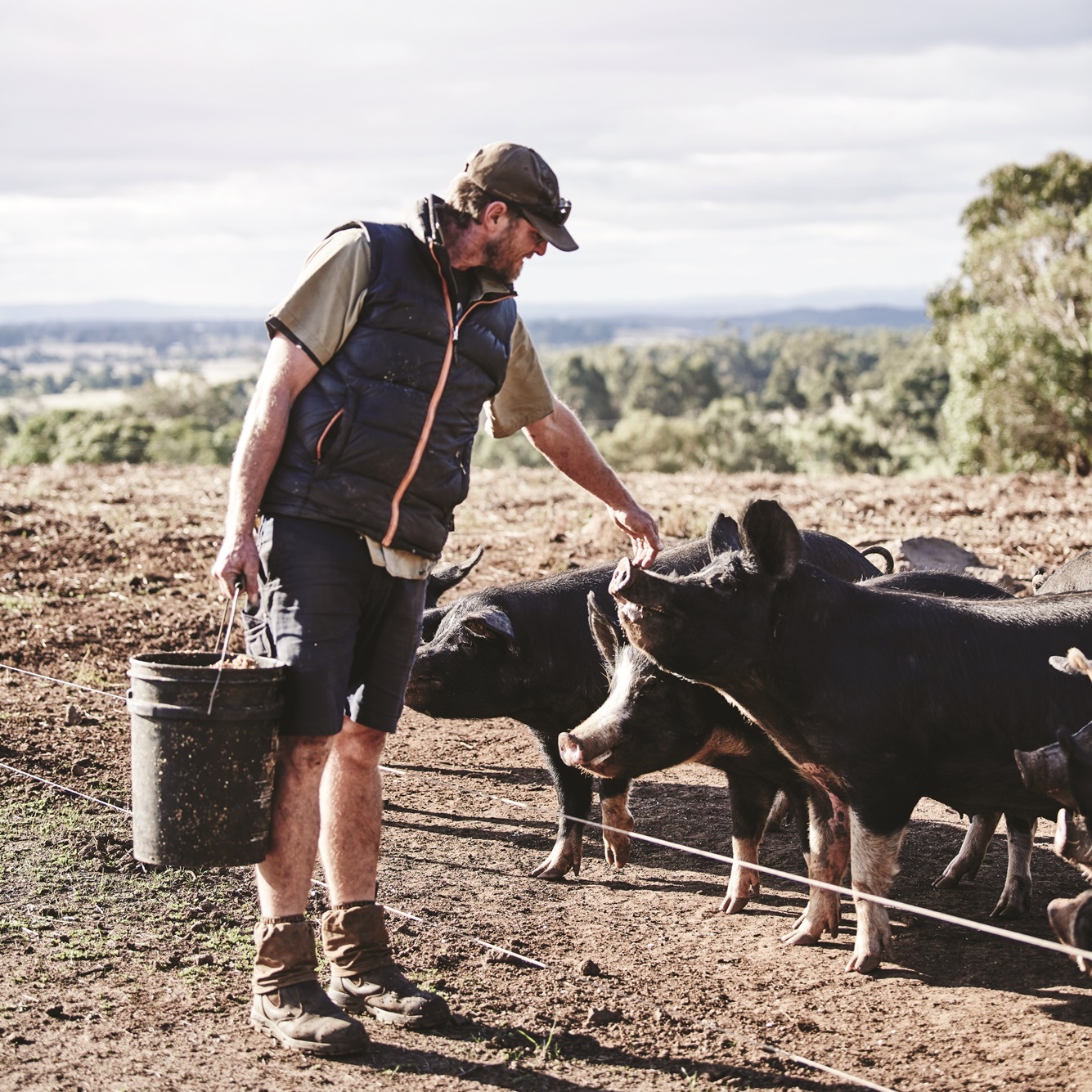
We all bought into this bright glamour package – food that was convenient, cheap and available all year round. Why wait for spring to buy asparagus? In the process, we lost track of the seasons and lost our connection with the origins of our food. We encouraged the transportation of food to and from the cheapest labour markets. Apples grown in the UK, sent to Africa to be polished and then resent to UK to sit on brightly decorated stands under “grown in UK” banners.
The globalization of food has been one of the worst perils we have imposed on ourselves.
But let’s get back to local food and consider its benefits. There’s that amazing environmental, social and economic triple bottom line. Can there be any doubt about the first? Small-scale regenerative farms make it their mission to improve their environment. Beneficial social outcomes are apparent in communities where farmers are recognised and treasured for their provision of good food, for their efforts at ethical excellence and for their hard labour. Witness the animated conversations at farmers’ markets – we are regaining something that had clearly been lost to us – contact with the people who make and grow our food.
Economic benefits, where income stays within the community, are self-apparent. Beyond all this, there are educational outcomes – the opportunity to learn from people who supply our food. And then the sheer deliciousness to be gained when, unshackled from the need to only grow and pick produce that transports and stores well, these folk revert to varieties and harvesting schedules that are in sync with nature and best for flavour. When was the last time you ate a fresh sweet apricot, and the juice ran down your chin? Eating as local as possible has many benefits and opportunities. Some might call it ‘eating with benefits’.
And the connection to ‘wellness’? Probably the most critical benefit nowadays of local food is transparency. Being able to trace where our food has come from and what’s been done to it has become increasingly important for our health.
So, make that chat with the grower at farmers markets throughout our region count; find out what regenerative organic, biodynamic practices she’s employing. And get your mouth around the new season leafy greens and broad beans already abundant at our local farms not to mention the marvellous Morel mushrooms and spring nettles and dandelions that are top of the foraging list right now. Not only are they delicious – but they are also full of nutritional value.
Go well. Go strong.
Alla Wolf-Tasker AM
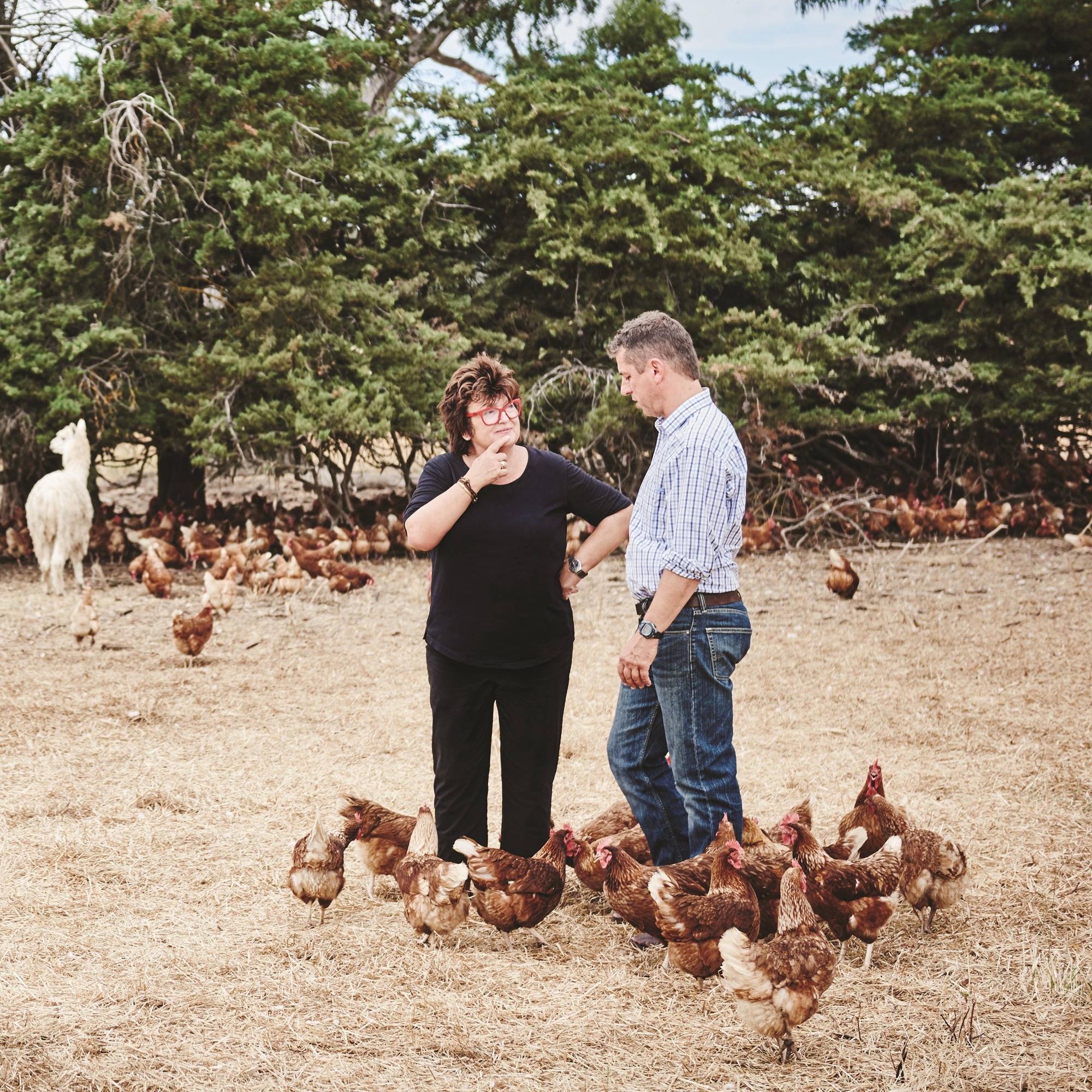
Daylesford Macedon Life Magazine (Winter 2022)
by Daylesford Macedon Tourism
It’s still late autumn as I write this, although the crisp nights are signalling winter is just around the corner. I never bemoan the change to the cooler season. For the avid gardener and cook, it heralds different chores and inevitably a completely different source of inspiration.
What may concern us with colder weather is the increased prevalence of colds and flu. This year it’s likely to be especially so, as our efforts to ‘flatten the curve’ over the past two years have had us washing our hands and social distancing much more often. As a result, we had NO flu cases to speak of and our immune systems just haven’t had the workout they would normally have over a winter of socialising or playing.
The trick will be to support and build our immunity as much as possible this year, give it a real BOOST. Vitamin and mineral supplements are often recommended. But of course, it’s the nutritional value of what we choose to eat that is most critical. ‘Good Food Matters’ is a useful mantra to keep in mind when you’re planning what you are going to eat. Local, seasonal and as fresh as possible is a good start.
In our beautiful region, although there are no frosts yet, we’ve harvested all of our (nine varieties of) pumpkins at our Dairy Flat farm, just in case. After all, it’s possible to lose the lot with just one frost…
Hoophouses are still yielding late autumn tomatoes, eggplant and every imaginable variety of pepper. We’re also harvesting beans. In the vegetable beds there are masses of greens, that include the lemony taste of sorrell and the biting heat of various mustard leaves.
And of course, there’s all the roots and tubers. Beautiful baby carrots, Jerusalem artichokes, turnips, occas and the super interesting and highly adaptable Hamburg parsley, are all abundant. Brassicas are coming on and we have our first harvest of the season of beautiful baby leeks and salsify.
Orchard apples and pears are still being picked. But the fruit of the moment is undoubtedly quince. A quick forage around some old plantings down country lanes recently also unearthed several trees still laden with damsons (plum like fruit). They were often originally grown as hedge rows, so do keep a look out. Herbs and ‘forgotten weeds’ that are still around and in flower, include beautiful aromatic blue flowered rosemary and the super useful orange calendula. Even our lemon verbena is still hanging on.
And really that’s just scratching the surface. Yet we inevitably think of the colder months as being lean and limited as far as fresh, highly nutritious choices are concerned.
And that’s the thing – every single one of the foods mentioned above have their own amazing list of nutritional benefits, from antioxidant and anti-inflammatory, to a raft of essential vitamins and minerals.
They are also all local and in season. Get out and about in the farmer’s markets of the region and take home a good array. Daylesford’s Sunday market at the railway station has several organic produce stalls. Pick up some beautiful – also very good for you – local honey while you are there.
We are regularly told that adding diversity to our diets improves the nutritional worth of what we consume. Build variety in your cooking. Try some of the lesser-known tubers mentioned above with your next local Brooklands free-range whey fed pork roast. Or just roast them on their own, adding wedges of onions and whole heads of garlic. Present them at the table drizzled with hommus and a pesto made from the green carrot tops, nuts and a good local olive oil. Add a side salad of winter leaves, some really good bread from our Dairy Flat Farm Bakers or from Two Fold (both at the market).
Add in some essential good company (boy did we discover how much we missed that) and you’re well on the way to a truly healthy experience.
Here’s to a winter of wellness for all of us.
Go strong.
Alla
Daylesford Macedon Life Magazine (Late Summer, Early Autumn 2022)
by Daylesford Macedon Tourism
Good food, together with good sleep prioritising exercise (even if it’s just a ramble through our beautiful surrounds here), socialising, conviviality, and integration in the community, are all critically important for our immune system. As these are things many of us had to forego throughout the lockdowns and travel restrictions of the past two years, our immunity is bound to have taken a battering.
In these difficult times, what we can control are the choices we make when we purchase food for ourselves and our families. Mind you, wellness should be about throwing down a raw fruit and vegetable juice now and then, nor the use of some new ‘fad’ grain or dried berry from somewhere over the other side of the globe. Rather, it’s about the confidence to make informed choices about our regular everyday purchases. Fresh local food is always the best because it’s in season. And, if you’re shopping at a farmer’s market, you’ll often get to meet the grower and can ask about their farming or production practices.
We’re spoilt for choice with weekly farmers’ market across our region bursting with great food from what is now acknowledged to be one of the most productive and sustainable food bowls in Australia. At Daylesford’s weekly Sunday market our own Dairy Flat Farm has a stall filled with sourdough loaves and Viennoisserie from our farm bake house, as well as plenty of just harvested pesticide-free produce.
Onions and garlic are a critically important addition to whatever you are cooking. Humble and often forgotten, they have recently been harvested. Garlic offers considerable protective benefits for our healthy immune response. Crushed or chopped, it produces allicin which offers substantial antiviral and antibacterial properties. Onions, meanwhile, have a substance called Quercetin a known inhibitor of various influenza viruses.
But beyond those humble contributors, right now a large bowl of mixed local berries is one of the best additions you could make to your diet. They are at their best, and like other vibrant brightly coloured fruits and vegetables, often provide some of the highest levels of nutrients, especially antioxidants. The anthocyanins found almost exclusively in these nutritional powerhouses have been shown to postpone cognitive decline. Berries are also a prebiotic fibre rich food that provide fuel to the probiotics in the gut. And a healthy microbiome, we now know, plays an essential role in our immune system. Buy your organic (there are a lot of pesticides that are often used in supermarket purchased produce) berries locally from farmers’ markets or enjoy the experience of picking your own at Morningswood Farm, just outside Daylesford.
But what about health and the immune system you ask? Well just check out your health food store or pharmacy to see the number of elderberry supplements, syrups, and powders on the shelf — or online. Elderberry is one of the most commonly used medicinal plants in the world and you will find it in abundance right here. As children, we were never without it at home. It was always used to treat flu and the common cold — one of our many, well-known SARS viruses.
Healthy eating can boost your immunity, lift your spirit and nourish your sense of wellbeing.
Go well! Go strong!
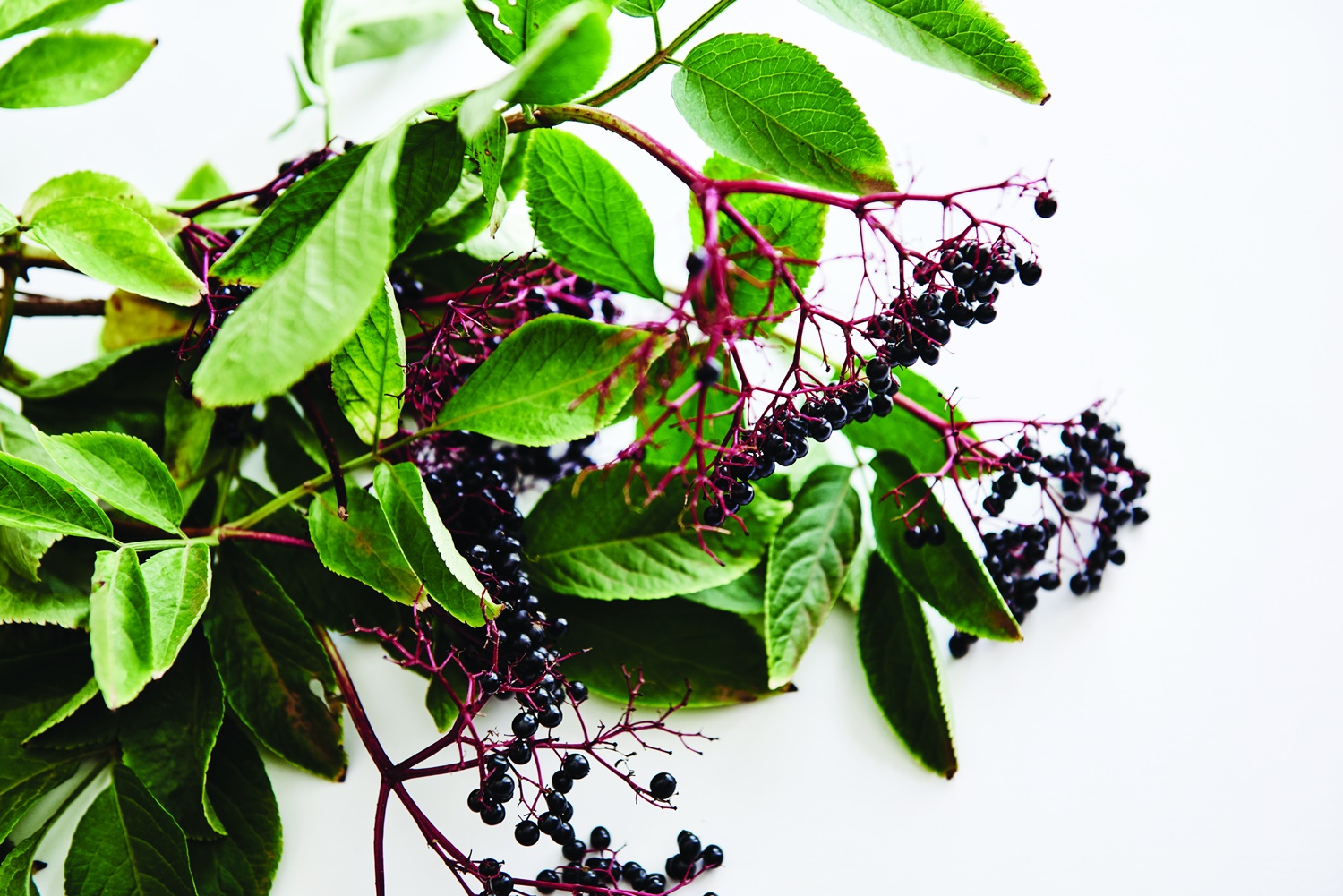
from woods, meadows, farms and gardens
Daylesford Macedon Life Magazine (Summer 2021)
by Daylesford Macedon Tourism
The Daylesford Macedon Ranges region is a foragers delight. In the first of a series of articles, Daylesford’s dining trailblazer, Alla Wolf-Tasker, talks us through some of the seasonal delights that can be found in our region, along with the health benefits they bring with them. We could all do with a little immunity boost right now, so keep your eyes peeled as you explore the farms, forests, meadows and gardens of our region.
The legacy of this year’s long winter of lockdowns and restrictions will not be easy to fix. We are so blessed here in Daylesford that despite periods of isolation, the fresh air and great outdoors of our forests, meadows and even gardens have continued to nourish and supply us. With a little knowledge of what is easily accessible and growing around us, we are able to supplement our diet with nutrient rich immunity boosting foods, herbs and teas
Spring moving into summer is our most optimistic of seasons. Things pop up everywhere. “Too much”, many gardeners and farmers will say as they race to keep up with mowing and weeding. But knowing a little more about some of these bountiful ‘weeds’ might change that perspective.
Slipping into paddocks for a few stinging nettles (I wear well-fitting gardening gloves) is a favourite activity of mine. You can’t miss the nettles. The serrated leaves are covered with fine stinging hairs (which disappear on cooking). They are extraordinarily good for you, containing large amounts of iron and protein, far in excess of what you would find in soya beans. I’ve dehydrated the leaves on occasion to make a tea to be drunk as is, or to be seasoned with honey and lemon. However, a wild weed pie or my version of the Greek ‘Hortopita’ is my favourite use for the nettles together with that scourge of gardeners — the humble dandelion.
The flat rosettes of fine leaves look harmless enough and eventually produce short lived pretty daisy like yellow flowers. They are quickly replaced by delightful dandelion ‘clocks’ which stand proudly upright and remain a continued source of fascination for children who blow into them loudly and watch the seeds carried away by breath and wind.
Dandelions are great colonisers though, so if you find one you’re bound to find many. The young leaves are wonderful added to a simply dressed salad and contribute a good deal of potassium – that agent of vigour. As a consequence, the dandelion has long had a reputation for healing the liver and gall bladder. The delicate slightly bitter taste makes it a good appetite stimulating green and suitable for a spring detox.
To make the wild weed pie, I’ll often combine these two ‘weeds’ with the late brassica leaves at our Dairy Flat farm — broccoli leaves, kale, chard and even spinach, all chopped and sweated down in a little olive oil and even with a bit of tricornered leek but without its pretty white flowers (you’ll find plenty of that around the region as well). Adding sautéed leek onion or garlic adds flavour and texture. Make sure your final mix is not wet as it can make your filo soggy.
To complete the pie, add an egg (this is not traditional), salt and pepper and some crumbled feta. Layer between multiple sheets of filo pastry in a baking dish and bake 30- 40 minutes until tanned and crunchy on top. Alternately fill triangles of filo pastry spanakopita style and bake. With all those leafy greens — you’ll be doing your health a real favour.
After the flush of fruit tree blossoms, daffodils and dandelions and before delphiniums, phlox and roses herald the flowery height of summer, there is a pause, a cessation of colour in favour of the scent of a whole plant family whose leaves we cannot help but to rub to release. Thyme, sage, marjoram, rosemary or lavender are all from the Labiate family which includes more medicinal and culinary herbs than any other plant family.
Lemon balm belongs here as well and I include it because of how easily it can be confused with stinging nettles. Its leaves are equally deep and regularly lobed on the margin, but gently wavy rather than sharply serrated. It’s most easily distinguished by the scent that’s critical when released — fresh like a lemon but with a warm undertone. Relaxing and enlightening, a cup of lemon balm tea can help still the mind at bedtime and promote sleep — that other critical contributor to good health and strong immunity. A particularly strong brew can also be added for a relaxing bath.
"As you wander around our region, keep a keen eye on how nature manages to emerge from spring into summer, after what is essentially the successful withdrawal from life of autumn and winter. It's worth watching."
Daylesford Macedon Life Magazine (Summer 2020)
by Daylesford Macedon Tourism
No matter which direction you’re coming from, it’s the hand-drawn signs and ‘honour boxes’ on the side of our country roads, that offer you clues to one of the biggest preoccupations of the folk in this beautiful region of ours. These may spruik potatoes or other freshly harvested fruit and vegetables, eggs, honey, preserves, compost, and even animal manure. “Local organic horse poo” proclaims one regular sign near a stack of well-filled bags. You stop the car, drop the notes and coins in the honour box and fill your boot. In season there might be punnets of blackberries, chestnuts, mushrooms, bunches of wild daffodils, and fruit windfalls gathered by kids for a bit of pocket money But primarily they signal a property where people are in the business of small scale agriculture of some kind. For an increasing number, it represents the family’s primary source of income as well as a determination and passion to succeed as a producer and grower within a sustainable agriculture model. Regenerative farming is alive and well in our ‘hood.
Good Food means so many different things to different people. Nowadays with the emphasis on health and our natural immunity that 2020 has brought with it, many are increasingly cautious about the source of their food. It’s a real pleasure to see and it might just be one of the silver linings and a lasting legacy of this difficult time. There’s a laudable desire to reconnect with the source of one’s food and importantly to be involved in the conversation about good nutrition and health for ourselves and our families.
Our own ethos at Lake House has always been to ask “where”, “what”, “who” and “how” about the produce we source and to share the answers with our guests… We now also have the added bonus of our own farm, just down the road. Dairy Flat Farm supplies much of our produce and bakes bread for all our operations. Apart from the opportunity to stay there, guests are regularly offered tours and workshops at the property. It’s gratifying to see interest in this kind of activity on the rise.
Using or buying local offers the likelihood of knowing more about your food. If you are eating out, certainly many of our restaurants and cafés here, quote the source of their produce. If you are staying in self-contained accommodation – head to the local farmers’ markets (there’s at least one somewhere in the region every weekend), buy up the beautiful fresh produce, and take the opportunity to even have a chat with the grower or their family.
The small community-based food market at the old Daylesford Railway Station (every Sunday) is a good case in point. There, (at the very least) you’ll find Adsum Farmhouse; Mt Franklin Organics, Goldfields Cheeses, Two Fold Bake House, Brooklands Free Range farm (pastured British White beef and Black Berkshire pork), as well as fresh produce, bread, and pastries from our own Dairy Flat Farm.
Take it all back with you, for a feast at your AirBnB with a great bottle of local wine or cider. Perhaps from Captain’s Creek Organics (much more than just wine) or Passing Clouds (catch the tourist train at the Sunday market for an enchanting few minutes ride there) or the Daylesford Cidery. The latter produces some brilliant drops from their orchard of 1800 Organic Somerset cider apple trees – now that’s dedication. And if you’ve ventured in that direction anyway, be sure to stop at Istra for some European small goods – prosciutto, pancetta, salamis, copacolla, and more. They’ll be brilliant with the beautiful sourdough and Ed’s Adsum gherkins you’ve picked up from the market. Be certain to look out for the Honest Egg Co.’s beautiful eggs from local pastured happy hens and fresh pasta from the same company. We have both available in our little produce store and café, Wombat Hill House in Daylesford’s Botanical Gardens. Well worth a ramble up there.
If all that’s just served to whet your appetite, it needs to be said that it also just scratches the surface of our local food story. The village main street offers more great possibilities in the shape of pork pies, terrines, and local bullboar sausages at the Daylesford Meat Co. Diagonally across on the corner, is the freshly minted WineSpeak – a great deli and cellar specialising in minimum intervention small production wines.
Morningswood Farm, near Eganstown, supply magnificent strawberries and other berries to Lake House and are opening their farm as a ‘pick your own’ facility this summer. Venture down Jubilee Lake road and pick up some O’Toole Honey. Messmate, the local variety is in abundance when those beautiful stately trees bloom in our forests. And we’re still only scratching the surface…
When your visit to this beautiful place we live in, is done – fill your esky with more of this local good stuff and take it home with you. Have some friends over, cook a great meal, share the bounty, and think about the dedication and hard work of the wonderful producers and provedores of our region. Remember the smiling faces of the food community you have met. Remember our springs, forests, our undulating landscapes, our far horizons, and our clear, inky black star-filled skies. And come back soon to explore our ever-evolving food story… There’s lots more to experience.
"Have some friends over, cook a great meal, share the bounty and think about the dedication and hard work of the wonderful producers and provedores of our region."
Breaking Bread
Story by Larissa Dubecki
It might come as a surprise to learn that Alta Wolf-Tasker, the one-woman revolution who created Daylesford’s iconic Lake House out of a weedy paddock more than 30 years ago, has anything left on her to-do list.
But despite running the lauded restaurant along with its boutique accommodation and spa, its sibling Wombat Hill House café and being an all-round champion of central Victoria – with the Order of Australia to prove it – Wolf-Tasker stilt longed for the authenticity of her own freshly baked bread.
“it was a dream of mine to offer a Larger variety of good bread to our guests at Lake House but our kitchens were operating to capacity,” she says. “With the Bake House we’ll be able to produce stow-fermented sourdough bread as well as beautifully laminated croissants, viennoiserie, donuts, breakfast buns and all sorts of deliciousness.”
The Bake House is part of a bigger story in the Wolf-Tasker world. It’s part of Dairy Flat Farm, the latest passion project for Alla, artist husband Allen and daughter Larissa.
Located in the picturesque town of Musk, seven kilometres south-east of Daylesford, this 38-acre property features a huge established orchard, vegetable garden, vineyard, olive grove and the beautiful farmhouse itself.
Housed inside a cellar accessed through a tunnel beneath Dairy Flat’s six luxury-suite Lodge, the Bake House has lured the singular talents of baker Michael James, from Melbourne’s renowned Tivoli Road Bakery, to collaborate in its operation and run regular sourdough baking classes for Lodge guests., “He’s an amazing chef and a great teacher,” says Wolf- Tasker. “When the property came on the market, I had all kinds of notions whizzing about in my head. I visited Michael for a chat and it turned out he and his partner were selling Tivoli Road and he was interested in getting involved in new projects… so it was all serendipitous.”
Wolf-Tasker envisages a broad symbiosis between all arms of her empire and the Bake House. Its produce wilt be served in the Lake House restaurant and Wombat Hill House, and guests will be able to visit the Bake House as part of farm tours and workshops. Guests staying at the Lodge at Dairy Flat Farm will also be able to order sourdough crust pizzas.
“I imagine that guests going on a morning ramble around the farm might pop in and chat to the bakers over a coffee. It’s a beautiful space and overlooks some of the gardens around the Lodge. A long avenue of herb plantings leads away from the bakehouse to the olive grove and vegetable gardens beyond,” says Wolf-Tasker, who believes Dairy Flat Farm wilt be unique in Australia in having its own bakehouse.
Also on the cards: Open days and market days during prolific growing periods at the farm when visitors will be able to stock up on beautiful fresh vegetables as well as good bread and pastries. People attending these bucolic events might not realise they’re part of another gentle food revolution.
“I’m old enough to remember when all the old country bakeries around here were bought up, their beautiful wood-fired ovens destroyed and all bread began being distributed from a centralised industrial baking facility,” says Wolf-Tasker. “What a terrible toss for our heritage and food culture. The sooner we move back to more small-scale baking operations, producing good bread throughout villages and local communities, the better.”
Dairy Flat Farm Daylesford
238 Dairy Flat Rd, Musk
dairyflatfarmdaylesford.com.au
You won't believe what Alla Wolf-Tasker is planning next
Story by Dan Stock
The force behind Lake House in Daylesford, one of the country’s most celebrated restaurants and regional hotels, the unstoppable Alla Wolf-Tasker is now extending her vision to a new pioneering project.
It’s a brave person who gets between Alla Wolf-Tasker and a good idea. As daughter Larissa tells it, the latest labour of love for the family behind Daylesford’s luxurious Lake House should really never have happened.
Champion of all things local, seasonal and sustainable, Wolf-Tasker had long longed to “put my money where my mouth is” and start growing produce for the restaurant while at the same time offering a new experience for guests.
The family had been searching “for ages” when a property just seven minutes’ drive from Lake House came up for auction. “Mum and I walked around it and loved it,” says Larissa. “We brought Dad and Rob [Larissa’s husband] back, and we got really excited. But we decided it wasn’t the right time. Rob and I were going to start a family, and it would take too much resources. We’d look for something else. But then Mum went and bought it!”
Wolf-Tasker and her mother, Katherine, planted all the trees on the bare Lake House site 30 years ago, so she took the farm’s drive lined with silver birches as a sign it was meant for the family. “The thing I love most about it,” she says, “is where Lake House had not a tree on it, this already had a beautiful Manchurian pear walk, silver birches on the drive. My mother planted the birches by the lake [at Lake House]. Everywhere we plant birches because it reminds me of my family – just that connection. There were a lot of things that ticked boxes.”
Her husband, Allan, took her out of town on the auction weekend to stop her participating, but the pull of a property just down the road with the potential to offer everything she wanted to add to Lake House proved too strong. Alla phoned in the winning bid.
“I kind of shocked myself that we got it,” she says. In June last year, the family got the keys to Dairy Flat Farm and have been flat chat since then transforming the 15-hectare property into a working farm.
Read more here.
How Alla Wolf-Tasker and the Lake House in Daylesford pioneered a regional rebirth
Story by Larissa Dubecki
In an age in which any flash-in-the-pan chef brings out a cookbook after two years in business, three decades deserves a street parade and glitter cannon – or, in Alla Wolf-Tasker’s case, a book pretending to be about Lake House but mostly celebrating the small producers who have helped make central Victoria one of the nation’s most exciting food destinations.
There’s never a very long time between drinks at this scatter cushion-strewn paradise on the shores of Lake Daylesford. Lake House is an idyll and aperitivo hour is its north star. But it has been a while between books – 10 years, to be exact – which makes Three Decades On: Lake House and Daylesford not just a worthy marker of the passing years but a timely reappraisal of a food world that has irrefutably changed since Alla and Allen Wolf-Tasker first spied their future on a trash-filled piece of land next to a waterway that was more swamp than lake on the edge of a depressed country town.
It’s an origin story Alla Wolf-Tasker is understandably tired of retelling, but much like a child with a favourite book, its appeal to the food-interested public is undiminished. The car wrecks they had to pull from the waters. The caravan they lived in during the four-and-a-bit years it took to build Lake House. The Thursday trips between their day jobs in the city, infant daughter Larissa strapped in the back seat, to spend four services in their tiny 45-seat restaurant convincing Australian diners more interested in toasted cheese sandwiches and Devonshire tea to submit instead to the pleasures of twice-baked goats’ cheese souffle, shiraz-glazed pigeon and tarte tatin.
To put Lake House’s 34-year odyssey into a broader perspective, its debut in 1984 was the same year Tansy’s was the Good Food Guide’s best new restaurant and an unknown Ferran Adria was being hired as a line cook at a French restaurant called elBulli.
Lake House itself in its first year received the GFG endorsement of being “worth a special trip to Daylesford”, then a forgotten town surrounded by Big Agriculture where eight shops operated along the otherwise deserted main street and unemployment hovered at more than 20 per cent.
That they not only survived but thrived, adding accommodation, a spa, cooking school and cafe and scooping up countless awards in the process, is all the more impressive given that 30 years in the restaurant world is like 90 in the rather duller place known as the real world.
Wolf-Tasker laughs now at the build-it-and-they-will-come mentality (not to mention the tears of her Russian mother, who owned a dacha – small country house – nearby and was aghast at her daughter’s mad plan), but history did prove their “unrealistic vision” correct. Lake House is often credited – quite rightly – with kick-starting regional destination dining in Australia at a time when travelling within Victoria was distinctly unfashionable and the smart set flew to the Gold Coast for their holidays.
Read more here.
Autumn bounty, tough decisions and gleaming leaves Dirty Linen celebrates 200 episodes by going back to the legend who kicked off episode...
“I have no doubt that freshly picked, sustainably grown local food will become the ultimate luxury.” — Alla Wolf-Tasker AM Wellness dining by Necia...
I KNOW THIS PLACE BY UTE JUNKER – RUSSIA WITH ALLA WOLF-TASKER Series 1, episode 3 of I Know This Place explores...
LEGEND OF THE INDUSTRY PRESENTED BY FINE FOOD AUSTRALIA ALLA WOLF-TASKER CULINARY DIRECTOR LAKE HOUSE (VIC) What drew you to a career in...